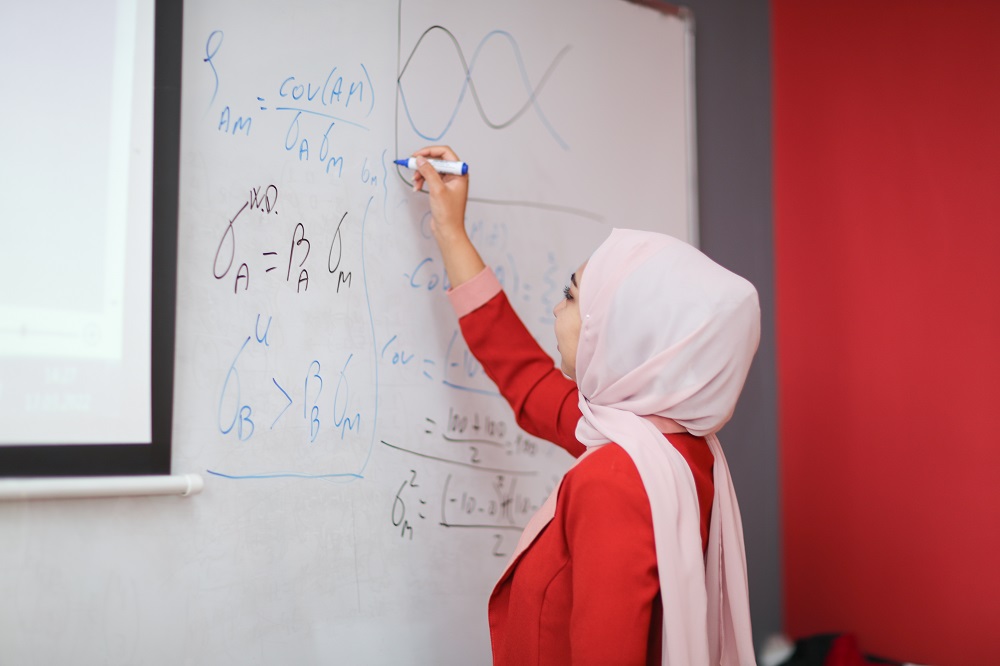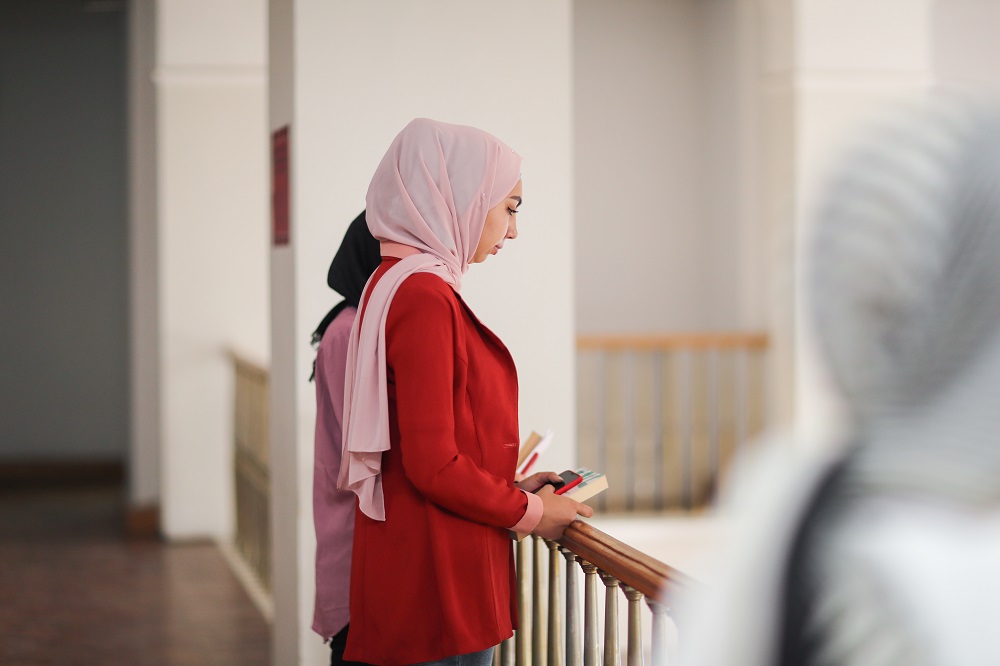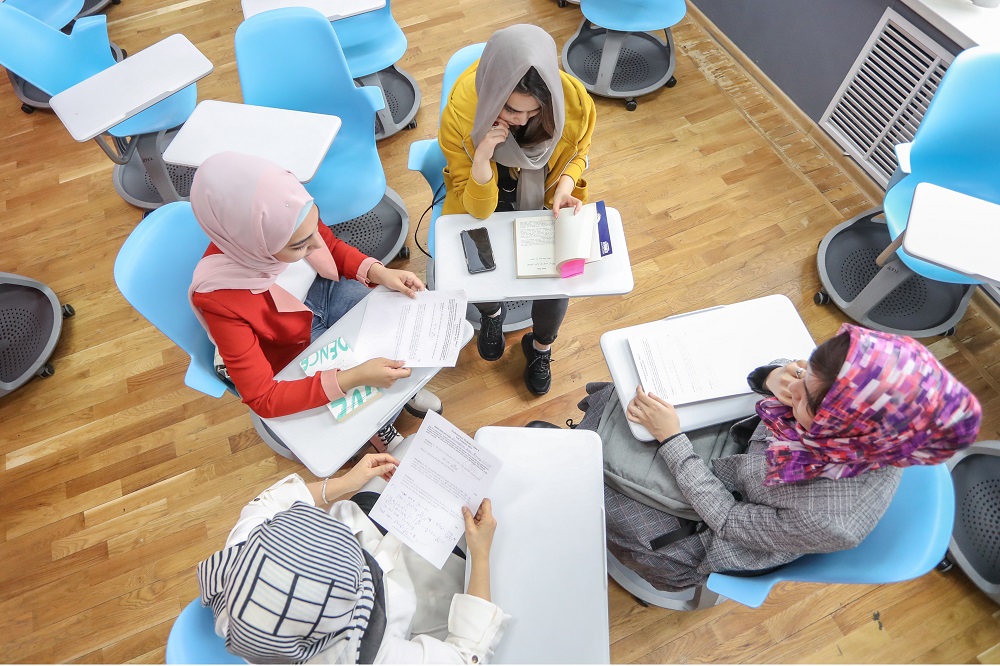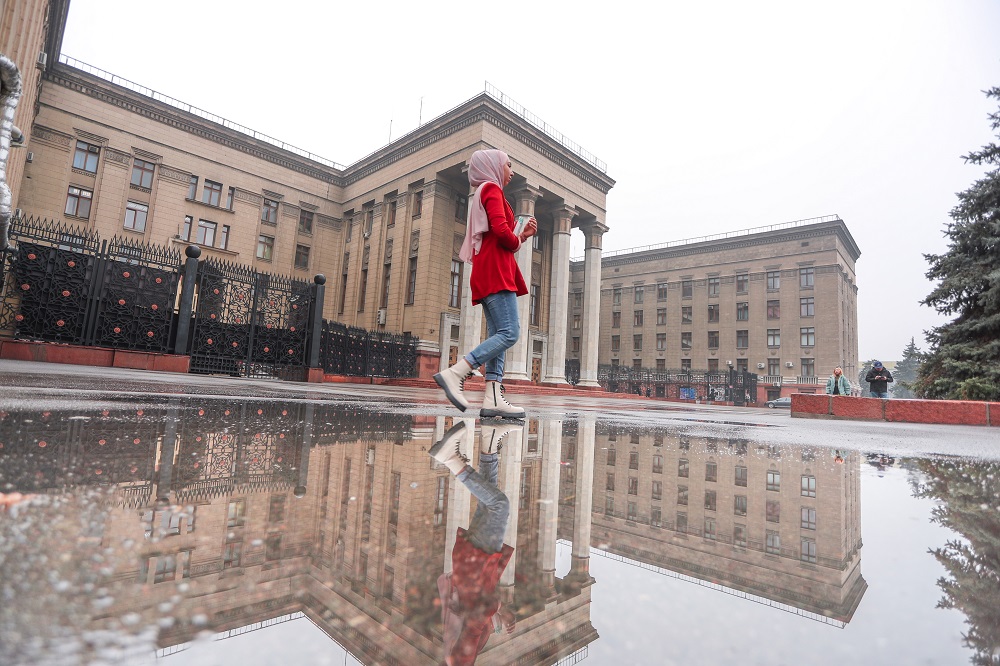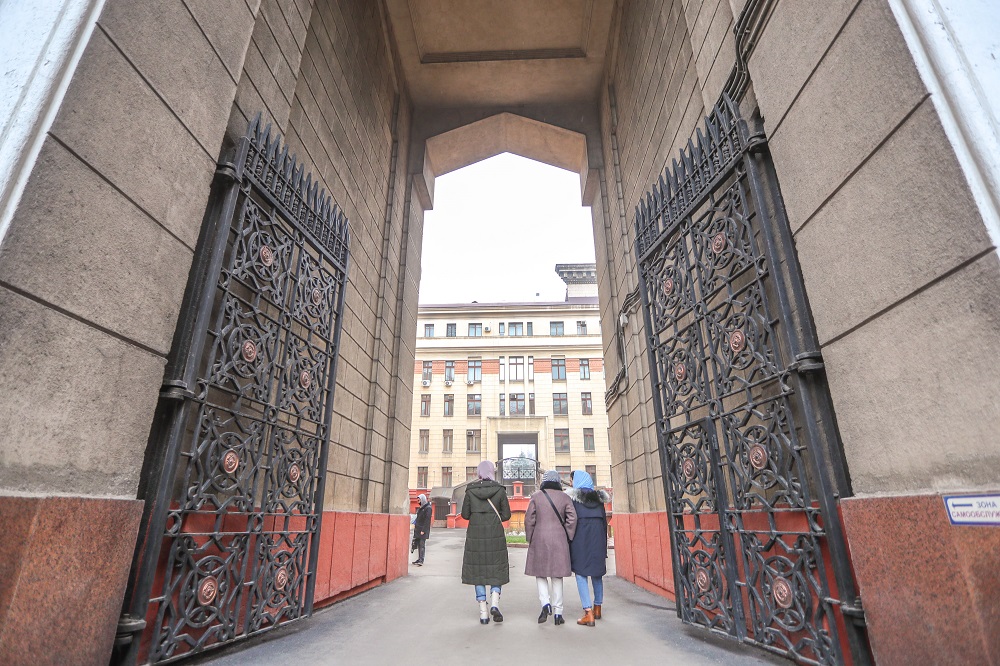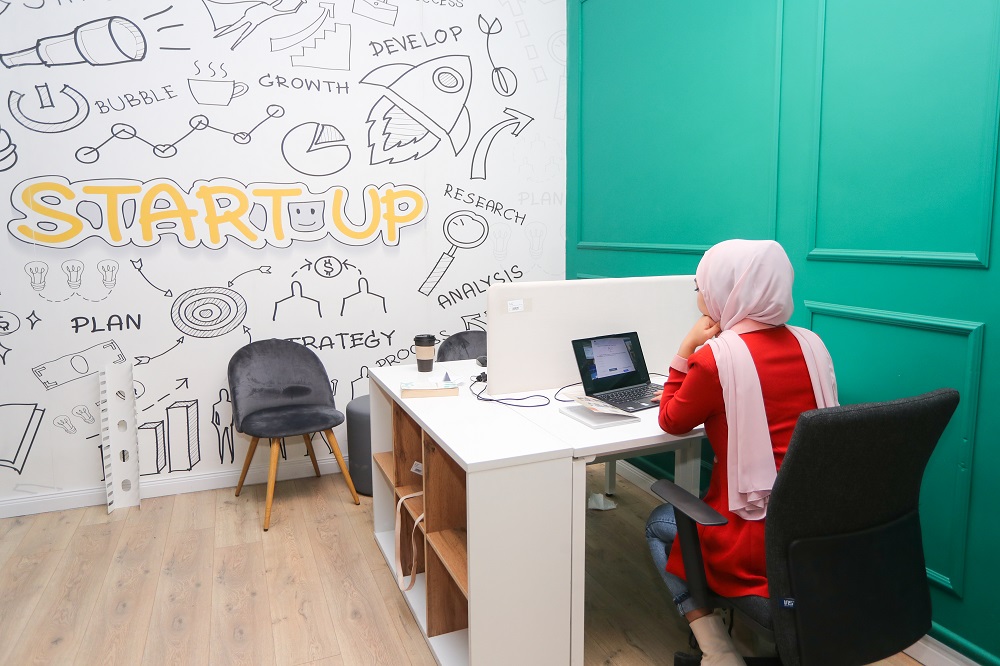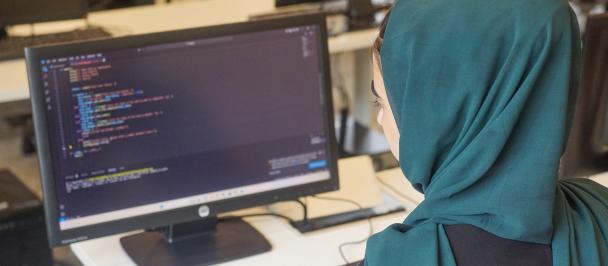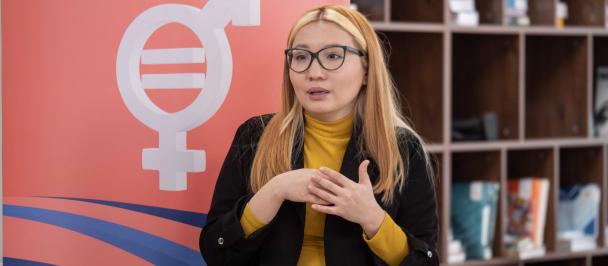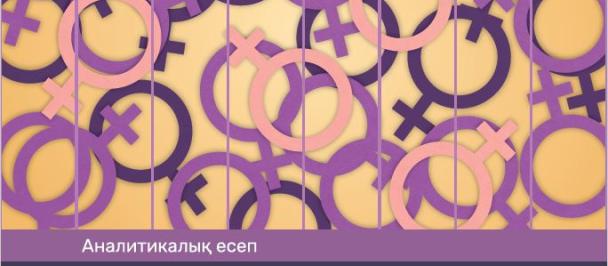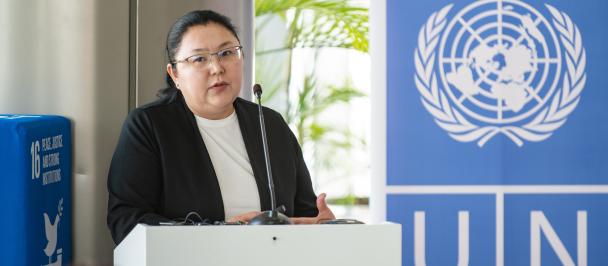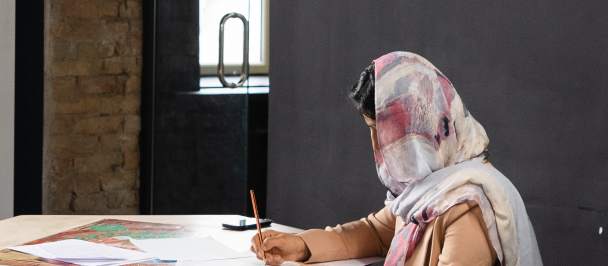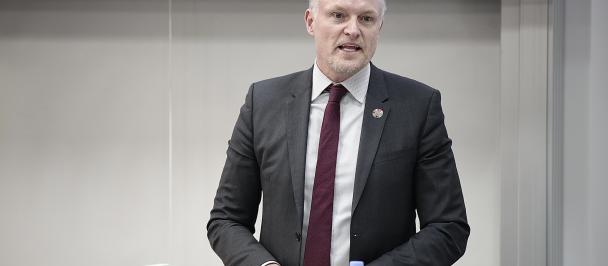Photo: UNDP Kazakhstan
My name is Muhadesa. I am 25. I came to Kazakhstan as a student of the European Union-UNDP scholarship programme in October 2019. I had never visited Kazakhstan before, it was my first time in Almaty. I completed my foundation language courses at AlmaU and then applied to Satbayev University to continue my education. Currently, I am in my second year studying for a BA in Mining Engineering.
Photo: UNDP Kazakhstan
Photo: UNDP Kazakhstan
This cross-border initiative, funded by the European Union and implemented by UNDP, allows Afghan women to study and graduate from universities in Central Asia. The initiative aims to provide educational opportunities for Afghan women. Overall, 155 young women from Afghanistan will receive education in Central Asian universities until 2027.
After finishing my first year at university in Almaty, I went home for the summer holidays. I like spending time with my parents and brothers. Sometimes we go on trips together. Afghanistan has pristine nature. On weekends we would head to some wondrous sights in other provinces, visit relatives or spend time in recreation zones within the city.
Photo: UNDP Kazakhstan
I was planning to return to Almaty by September 2021. On 15 August 2021 in the morning, I went to the embassy to submit my documents for a student visa. I was waiting in the queue with other people who had come to the embassy that same day. Everything seemed normal, as usual. Suddenly we heard noises from outside, people were shouting in the streets. At first, we did not understand what was going on. Or maybe we just did not want to believe it. Gradually, it started dawning on me.
We were informed that the embassy was not working that day and that visa applications would be accepted for processing another day. I decided to return home. Usually, it takes 40 minutes to get to the embassy by car. That day my journey back home took me almost 4 hours. The roads were packed full of vehicles. Traffic jams were everywhere.
My family and I spent the next several days at home. I remember we didn’t go out for a week. Those days were full of uncertainty. But gradually, life returned to a daily routine.
Some things did change though. In the majority of provinces girls were barred from attending high school. The elder daughters of my relatives were bored from sitting at home. In general, boys and men are encouraged to wear traditional clothes rather than jeans and t-shirts which they are more used to wearing.
Photo: UNDP Kazakhstan
I was eventually able to return to Kazakhstan at the beginning of the academic year. In the beginning I was worried about my future as a student, but the scholarship continued to provide support and attended to my needs. Classes were organised in an online format so that me and several other girls would not miss curriculum subjects. I am happy to continue my education and my daily academic routine keeps me occupied and content.
My family is very supportive about education for all their children regardless of gender. My mother wasn’t able to get an education because when she was young and still regrets those missed opportunities to study.
I want to become a specialist and work in the field of mining. I study because I want to matter, to belong in society, to tackle challenging projects, to be trusted as a specialist and to be able to look back at my path of growth from a young girl to a mature woman with professional skills and be proud of myself. Those are things that seem so achievable but as the same time so distant.
But a few things hold true. My love for my parents, for my friends, is steadfast. My willingness to study is an abiding commitment.
Photo: UNDP Kazakhstan
_________________________________________________________________________________
This publication was produced by UNDP within the project “Supporting the Economic Empowerment of Afghan Women through Education and Training in Kazakhstan, Uzbekistan and Kyrgyzstan” with the financial support of the European Union. Its contents are the sole responsibility of authors and do not necessarily reflect the views of the European Union.

 Locations
Locations